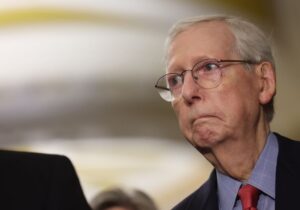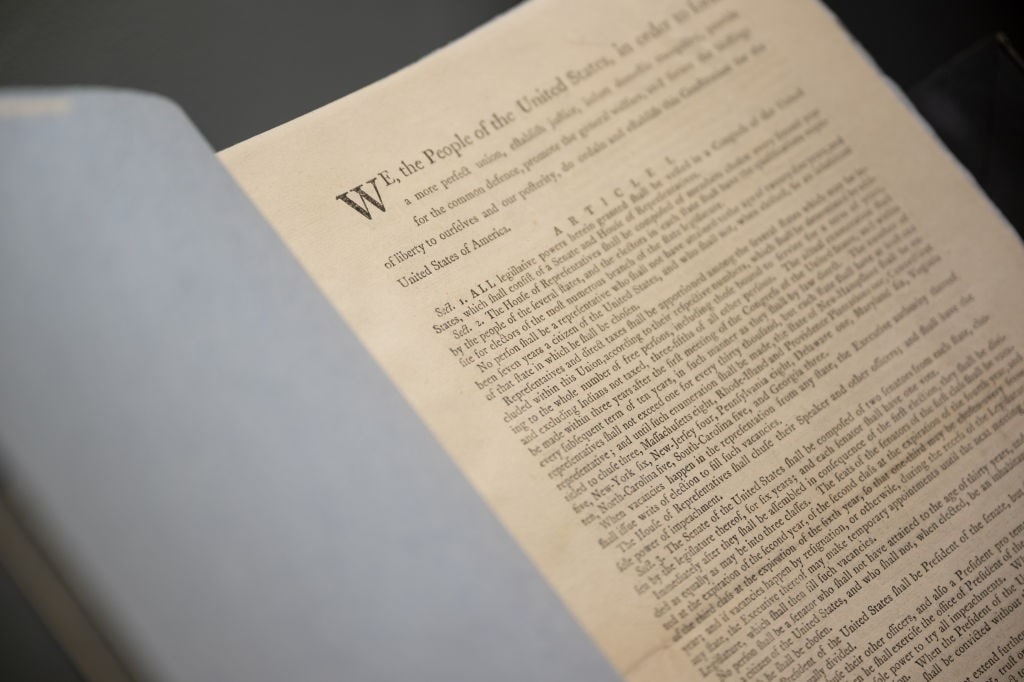Rod Blagojevich was an Illinois governor who shot into national fame in 2008 after being caught on wiretaps trying to sell an appointment to the United States Senate following Barrack Obama’s move to the White House. The power of one person to send someone else to the Senate without confirmation or election did not exist when the Constitution became the law of the land. It came via the 17th Amendment in 1913. The idea behind the amendment was to make the nation more democratic, but that isn’t how the Founders designed it. While the main purpose of that change was to make the country more democratic, it also meant taking power away from the state level and transferring it to the establishment elites of the two main national political parties.
Basic Civics
In our bicameral system of government, the Senate is the upper chamber. The House of Representatives, designed to be directly accountable to and represent the citizenry, is and has always been elected by popular vote with the number of representatives varying by state population. The Senate, however, was designed to represent the state governments themselves. As such, senators were originally voted on not by the public, but by the state legislatures, and each state was granted two seats regardless of population. This made the senators directly responsible to their state governments – which were still elected directly by the people – while also serving as a counterweight to the House, which was more influenced by populism. This is basic civics, but that hasn’t stopped large media publications like The Atlantic from publishing pieces calling for the Senate to also be based on population, essentially making it another House of Representatives.
Lead Up to the 17th Amendment

(Photo by Alexi Rosenfeld/Getty Images)
There were two contemporary criticisms of this system when it was put into practice. Some state governments were not able to agree on who to send to the Senate, and there were sometimes long periods of vacancies, leaving some states without equal representation in the upper chamber. Often corruption was to blame. There had been allegations of bribes being made to state legislatures by Senate hopefuls, the most prominent being William Clark in 1899, a businessman from Montana who would later address the scandal with the assertion that he never bought a man who was not for sale.
While there had always been voices calling for direct elections of the Senate since the adoption of the Constitution, they really became amplified in the first decade of the 20th century when media tycoon William Randolph Hearst championed the issue in his newspapers. Progressive politicians like William Jennings Bryant also took up the cause. In 1911, the 17th amendment was introduced to the Senate floor. It passed with a vote of 64 – 24, with four abstaining.
In 1912 it went to the states for ratification, and only one – Utah – rejected it. In 1913 it became the law of the land, along with the 16th amendment, which gave unlimited taxing power to the federal government as well. Because of that transformative year, power has been steadily syphoned away from local and state governments and given to the federal level. This is how we got to people in Washington, DC, toying with the idea of banning certain kitchen appliances at someone’s home in Alaska.
The Cost of Becoming a Senator
In the 2022 election, almost $9,000,000,000 (that’s nine billion) was spent on the national congressional elections. In 2018, victorious senate candidates spent an average of $15.7 million dollars to win their seats, while their companions in the House spent $2 million on average. Such a large barrier to entry takes away from the democratic spirit that the 17th amendment was supposed to stand for.
Raising these sums at the grass roots level is difficult, which means the politicians need rich and powerful donors who can write big checks. With the people who represent the many depending on the blessings of the few, one would need to be blind to not acknowledge the possibility that an elected official with the goal of getting re-elected might do a special favor for whoever agreed bank roll them.
What Would Happen With Repeal
“It is recommended by the double advantage of favoring a select appointment, and of giving to the State governments such an agency in the formation of the federal government as must secure the authority of the former, and may form a convenient link between the two systems.” – Federalist Paper #62
If the 17th amendment were to be repealed, we would revert back to the prior system. The state legislatures could then set their own policies for choosing senators, and if a popular election for certain states is preferred by their population and leaders, such states could hold election referendums on who to choose and the legislatures could respect the wishes of the people.
American politics is increasingly becoming more polarized and partisan every year with no end in sight. Repealing the 17th amendment and allowing the state governments to decide who they will send to the Senate will tip the power back to the state level and away from the nation’s elite few power brokers. Politics is supposed to be local, and the American republic is supposed to be largely decentralized with the national government having just a few clearly defined powers with the remainder of anything not mentioned belonging to the states or the people. In the age of mass media, especially with the internet, our eyeballs are directed to pay attention to the top level while ignoring local issues that arguably have a greater direct effect on our day-to-day lives. A return to the previous way of doing things can help lower the temperature of our political anger.
The Brewing Potential Constitutional Crisis

Mitch McConnel (Photo by Kevin Dietsch/Getty Images)
There is a very good possibility that we are going to see a collision in the near future regarding a state legislature’s attempt to have its say on who a governor can appoint should a seat become vacant before an election. Republican Kentucky Senator Mitch McConnel is 81, and there are concerns about his health following two incidents where he physically and mentally froze while speaking with reporters. Kentucky’s governor, Andy Bashear, is a Democrat. Most of the state’s lawmakers are Republican. The legislature passed a law saying that the governor can only replace a vacant Senate seat with someone from the same political party as the previous office holder. The governor originally vetoed this bill, but the legislature then overrode his veto to make it law. Since the recent health scares have brought this legislation back into the news, Bashear has been coy with whether he will follow that law or go against it.
But the entire idea that political parties have so much power goes against our founding ideals. Our first president did not belong to a party, and in his Farewell Address, he warned the nation against them. But they formed anyway as a necessary evil because people with similar interests needed to band together to promote their goals. And while our country’s politics have always been a two-party system, the reality was that they used to be more like coalitions between local and state governments that then were reflected on the national level.
That’s not the case today. Power has been concentrated in Washington to a select few so that, when a policy is enacted, it comes from the top down, and the rank and file are simply expected to enforce it. That’s not how the Republic was designed to work, and we are living through its deterioration.
~ Daniel Kowalski is an American citizen who’s worried about his children growing up in a country on the decline because of poor management.




